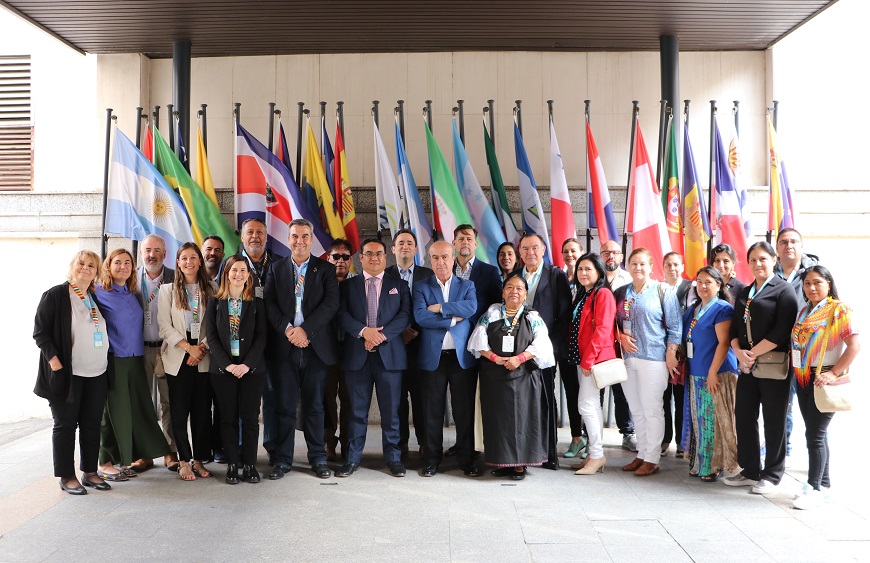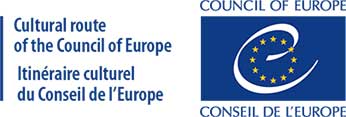The International Congress 'Cultural Routes and Itineraries for the development of territories', was held on May 28th and 29th at the San Francisco cultural complex in Caceres, organised by the European and Ibero-American Academy of Yuste Foundation, the Organization of Ibero-American States for Education, Science and Culture (OEI), the Ministry of Culture and Heritage of Ecuador, the Metropolitan Institute of Heritage of Quito and the Secretariat of Culture of Quito, the Autonomous University of Zacatecas in Mexico, and the European Institute of Cultural Routes (IEIC), in the framework of the ADELANTE 2 program of Triangular Cooperation between the European Union, Latin America and the Caribbean.
Nearly 200 people from 25 countries registered in person and online from Argentina, Belgium, Bolivia, Brazil, Chile, Colombia, Costa Rica, Cuba, Dominican Republic, Ecuador, Finland, France, Germany, Guatemala, Italy, Luxembourg, Mexico, Nicaragua, Panama, Paraguay, Peru, Portugal, Spain, Uruguay and Uruguay.
Also speaking at the opening of the event was the Executive Secretary of the Enlarged Partial Agreement on Cultural Routes of the Council of Europe and Director of the European Institute of Cultural Routes, Stefano Dominioni, who explained that cultural heritage has always been a priority for the Council of Europe, with the aim of achieving better unity among citizens, as it is "a fundamental resource for the construction of a peaceful and democratic society to stimulate sustainable development and for the promotion of cultural diversity".
Thanks to this Triangular Cooperation Initiative, the knowledge and experience of the member entities of the Alliance, as well as that of the collaborating entities, in the field of cultural routes will be used to strengthen and consolidate three existing routes in Ecuador and generate a model of sustainable development in territories through tourism: the “Cocoa Origin Route”, the “Florida Tulipe Route” and the “Route of Cultural Actions”. This model will be applied in the rest of the country, seeking the consolidation of other existing routes and the creation of new ones.
The objective of the International Congress 'Cultural Routes and Itineraries for the development of territories' was to share knowledge and exchange experiences on cultural routes and itineraries as instruments for the development of territories based on the enhancement of heritage and sustainable tourism.
The event concluded with a meeting with the authorities of the OEI, including its Secretary General Mr. Mariano Jabonero, at the headquarters of its General Secretariat in Madrid on Friday, May 31, with the participation of attendees and organizers of the congress to reflect on its results and the different potentialities that the cultural routes and itineraries present for the development of the region.




